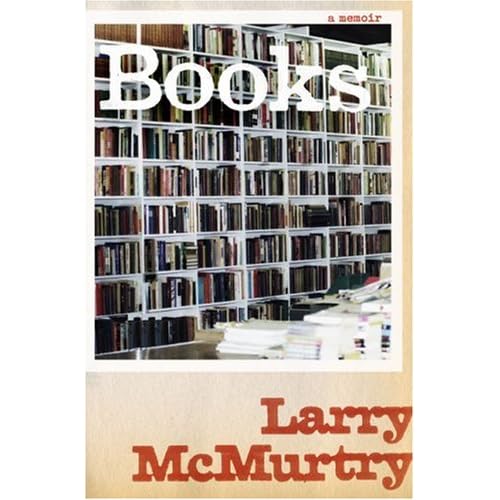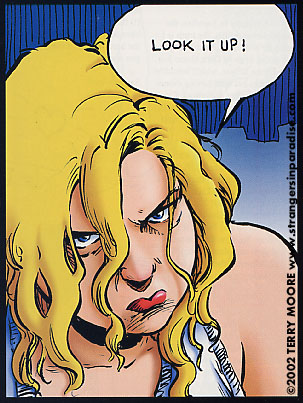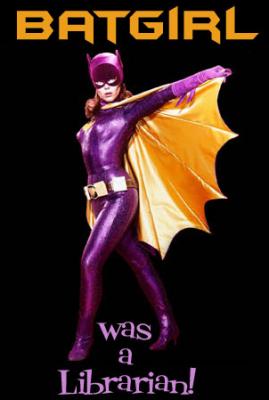
Sunday, July 27, 2008
Books: A Memoir by Larry McMurtry

Saturday, July 26, 2008
Gayl Jones

I just finished reading two books of poetry by Gayl Jones: "Xarque and Other Poems" and "The Hermit-Woman". As a poetry lover, I had always heard her name mentioned with glowing comments about her writing.
I looked up her biography after I read the first book. Her titles include novelist, poet, playwright, professor, and literary critic, and she was born in Lexington, Kentucky. But more disturbing to me was the chronicle of her personal life.
Her career has been marked by periods of silence, and apparently since the 1980's a withdrawal from public life. She has stated that she wanted to be known by her work and not her personal life. And really, that is quite understandable. Unfortunately her personal life became fodder for lurid headlines. Despite her accomplishments and success she seems to be quite a lonely figure and somewhat of a paranoid personality.
When she married, her husband (Bob Higgins) took the name Bob Jones. Higgins had already had several clashes with the police and was said to be a paranoid personality himself. When he was arrested after threatening someone with a shotgun, he and Gayl fled the country. Jones resigned her position (which was in Michigan at the time) with an angry letter that charged the administration with racism and, according to the New York Times, contained the sentences "Do what you want. God is with Bob and I'm with him."
The couple spent time in France and Sweden over the next few years and Gayl continued to write. When she and her husband returned to the states they moved in with Gayl's mother in Lexington. They rarely spoke to or interacted with their neighbors. Gayl's mother developed cancer and the couple became convinced that the hospital was using her secretly in medical experiments and removed her from the hospital against doctors' orders. When her mother died, they harassed hospital administrators and law enforcement officials.
When the police went to their house to serve an outstanding warrant on Bob, they found the door bolted and smelled gas. Gayle (according to the Boston Globe) dialed 911 and screamed "The state of Kentucky is damned. Get these cops out of here! The U.S. is damned. If you go to Iraq, I hope they destroy you. If you try to take my husband you'll have to kill me. You killed my mother, you'll have to kill me as well." Officers entering the house managed to subdue Gayle (who was held in a Kentucky mental hospital for 17 days), but Bob Jones slashed his own throat all the way through to the spinal cord and died instantly. "I'm sure you realize my brother-in-law was insane," Gayl Jones's brother Frank was quoted as saying in the New York Times.
Released from the hospital, Gayl stayed in Lexington and continued her reclusive life. But what a stormy and turbulent life it had been to that point.
Her writing, though criticized for what some see as an indictment against black men (portraying them as abusive husbands and lovers) still manages to show how racism and sexism build on each other. In "Hermit-Woman" the female narrator says: "I am any ordinary woman" when the lovers ask "Are you a hermit?". When asked "Does love transform?" the woman responds that "love's a danger and a promise". There are many passages in this book that prove Ms. Jones is an engaging story-teller who weaves together memorable narratives with intuitive depth and provocative implicitness. In fact, it has been said that perhaps the single strongest element in Jones's work is its evocation of human speech; she has said that she had to hear something before she could write it. Her language brings to mind improvisational jazz or the repetitions of blues music. And she always encouraged her students to write stories after listening to music.
It is a common notion that there is a fine line between creativity and insanity, and a brief perusal of history would probably support that notion. Are genius and madness related? There is something mysterious and unexplainable about the creative process. I'll leave all of that to the psychologists to sort out. I did find the writing of Gayl Jones fascinating.
Monday, July 21, 2008
The Shack by William P. Young
 I love to read book jackets. I enjoy seeing what other people have to say about a book; I look for the synopsis so I can see if the book might be something that appeals to me; and I love to read about the author. In the case of The Shack, two quotes by Eugene Peterson caught my attention. The first, on the front cover, says "This book has the potential to do for our generation what John Bunyan's Pilgrim's Progress did for his. It's that good!" The second one on the back of the book said "When the imagination of a writer and the passion of a theologian cross-fertilize, the result is a novel on the order of The Shack. That definitely got my attention.
I love to read book jackets. I enjoy seeing what other people have to say about a book; I look for the synopsis so I can see if the book might be something that appeals to me; and I love to read about the author. In the case of The Shack, two quotes by Eugene Peterson caught my attention. The first, on the front cover, says "This book has the potential to do for our generation what John Bunyan's Pilgrim's Progress did for his. It's that good!" The second one on the back of the book said "When the imagination of a writer and the passion of a theologian cross-fertilize, the result is a novel on the order of The Shack. That definitely got my attention.This book wrestles with the question of evil in our world and why God if he is a loving God and so powerful does not do something about it.
Mackenzie Allen Philips has a young daughter, Missy, who is abducted during a family vacation and evidence that she has probably been brutally murdered is found in an abandoned shack in the Oregon wilderness. Several years later, in the midst of what Mackenzie Philips calls his "Great Sadness", he receives a note, apparently from God, inviting him back to that shack for the weekend.
What he finds there will change his world forever. This amazing book will challenge you to more closely examine every biblical cliche and spiritual insight you thought you possessed to reveal the true nature of the divine heart of God. If you were a person who always had a lot of questions about organized religion and the struggle between tradition and truth, you may need to read this book. The beautiful way that spiritual insights are woven through the narrative of this book will delight and amaze you.
This is a book of great wisdom and insight, and it has been something of a publishing phenomena, as it has touched people's lives in various ways and continues to do so. People have ordered copies and then ordered more to share with friends. In the first four months of publication, without the book appearing in one bookstore and without any national media campaign, more than 12,000 books were sold from a single website. Their dream is to sell enough copies of the book to open the door for a feature film that the world will want to see and that will present an accurate understanding of God's character and nature to a world that longs in the deepest places of their hearts for such a God.
This book examines pain, loss, grief, anger, longing, secrets, lies, forgiveness, and presents a loving God who's purposes are accomplished every time we reach out and touch a heart or a life with kindness and service. The Shack is a beautiful story of how God can be found even in the midst of our pain and will never forsake us.
Sunday, July 13, 2008
You Can Go Anywhere: From the Crossroads of the World by Georgia Green Stamper
 There were several things that made me want to read this book:
There were several things that made me want to read this book:(1) The comment made by Gwyn Hyman Rubio (author of Icy Sparks) on the back of the book jacket: "Georgia Green Stamper is to Kentucky what Bailey White is to Georgia." I am a huge Bailey White fan.
(2) The quote from Silas House on the back of the jacket where he says "Georgia Green Stamper's essays do that most important thing that only the most accomplished writers are sometimes lucky to do: capture and preserve a place, a time, and its people." I adore the writing of Silas House.
(3) In the Introduction, Leatha Kendrick quotes one of my favorite passages from Edward Abbey's Desert Solitaire in evoking the power and precision of Ms. Stamper's writing to capture that time and place and people that Silas House mentions: "This is the most beautiful place on earth. There are many such places. Every man, every woman, carries in heart and mind the image of the ideal place, the right place, the one true home, known or unknown, actual or visionary."
Her essays are split into sections titled "A Little Bit of our Soul", "Family is our Unique Slant on History", "You Might as well Laugh, Mother Always Said", and "The Seasons...would always be Changing". These essays are filled with humor and insight and are very thought-provoking. The Appalachian region has a wonderful tradition of oral storytelling. Books like this, where you capture that tradition so lovingly between two covers are essential.
Georgia Green Stamper is a seventh generation Kentuckian who grew up on a tobacco farm in Owen County. She and her husband still own land that has been in the family for over a hundred and fifty years. I am an Alabama girl who's family still lives on land that my grandparents worked and who just happened to marry a Kentucky boy who lives on the land his father worked himself into an early grave over.
But I do know her people. They are my people too. And though she says her people were common folk in the eyes of the world, people of small consequence, her stories show that she appreciates growing up and being immersed in a family's culture and history. That despite the outward poverty of their lives (outhouses, coal burning stoves, drafty houses with linoleum floors, unpaved roads and one room schoolhouses), these people and this way of life had an innate wisdom and rhythm to it that is fast disappearing, and yet is wonderfully preserved in her stories. She is speaking their piece for them to anyone who will listen. And I hope that we will all cast an ear in her direction.
Saturday, July 12, 2008
Pizza, Pigs, and Poetry by Jack Prelutsky
 Jack Prelutsky is the nation's first Children's Poet Laureate. He has been writing poetry for children for over forty years.
Jack Prelutsky is the nation's first Children's Poet Laureate. He has been writing poetry for children for over forty years.Wednesday, July 9, 2008
Whale Song by Cheryl Kaye Tardif

Ever since I read Mind in the Waters by Joan McIntyre (a book that celebrates the consciousness of whales and dolphins) I have loved cetaceans. It breaks my heart that they are still hunted. Commercial whaling has been banned for more than two decades, but Japan, Iceland, and Norway continue firing harpoons into these gentle creatures for products that nobody needs. Orcinus Orca (the Killer Whale) is not hunted commercially, is found in all oceans of the world, and with its striking black and white coloring is one of the best known of all the cetaceans.
Another great interest of mine is Native American culture. I greatly admire the native peoples and respect the inherent wisdom of the natural world that so permeates their culture.
So this book, for me, was a natural read. And I was not disappointed. It is a well written young adult coming of age tragedy thats appeal transcends the teen audience and encompasses anyone that would enjoy a tale well told.
Sarah Richardson moves with her family to Vancouver Island just as she's about to enter the sixth grade. Sarah makes a new best friend, Goldie (a local native girl), and soaks up wisdom from Goldie's grandmother Nana. Her mother is an artist and her father is a marine biologist studying killer whales. While there, Sarah is involved in a family tragedy that will change her life forever. As Sarah is the only witness to this tragedy, and suffers hysterical amnesia, this novel is a haunting tale of choices made and how the repercussions of those choices can tear a family apart. It is an enchanting and uplifting tale that combines the optimistic spirituality of native myth with the hard realities of modern existence. The characters and descriptive setting will enthrall you.
The edition of Whale Song that I read was dedicated to the memory of the author's brother, Jason Anthony Kaye, who was brutally murdered in 2006, a week after his 28th birthday. When the police discovered his body, they set out to track down his next of kin. In the end, the police tracked her down through this book. When they asked Jason's friends about relatives in the area, they said Jason had a sister who lived on the south side of Edmonton--they didn't know her name, but they knew that she had written a book about whales. The marvels of the internet ultimately, but sadly, brought two homocide investigators to her door. What a story. You can read more about Jason at the site she has set up in his honor: http://www.jaysporchmonkeys.com/
I highly recommend this book.
Monday, July 7, 2008
Sins of the Fathers by Nash Black

Saturday, July 5, 2008
The Dance by Oriah Mountain Dreamer

If you can bear the accusation of betrayal
I want to know if you can see Beauty
I want to know if you can be alone








































